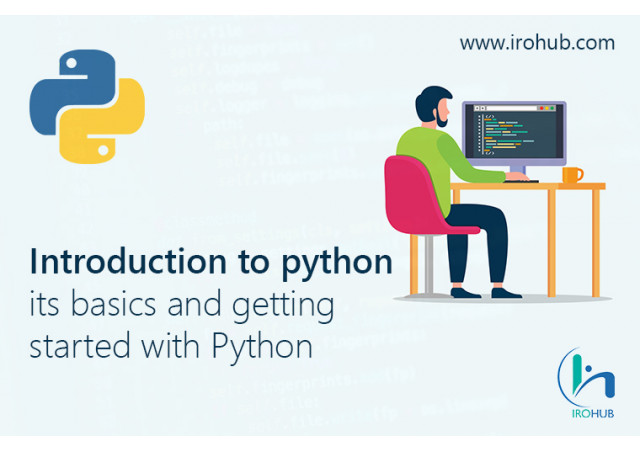The intention of Python started in 1989 when its inventor Guido van Rossum was dared by the weaknesses of the ABC language (namely extensibility). Rossum commenced work on cultivating a new language that combined all beneficial features of ABC language and new aspired peculiarities, such as extensibility and exception handling. Python 1.0 was issued in 1994; it obtained the module system from Modula-3, could communicate with the Amoeba operating system, and included practical programming tools.
December 2008 marked the announcement of Python 3.0, giving up backward compatibility and maintaining a new design to avoid duplicative constructs and modules. It is still a multi-paradigm language that allows the benefits of object-orientation, structured programming, and functional programming.
Released in February 2015, Python 3.4.3 offers an extreme development in Unicode support, among other new highlights.
Python syntax
Python has a very simple syntax structure. The programmer can simply type the action to be done. Here are a few examples that reveal the simplicity and clarity of Python syntax.
- To print hello
print("Hello, World!")
- Example for the conditional statement
if 5 > 2:
print("Five is greater than two!")
- To type a comment
#This is a comment.
Advantages/Benefits of Python
The various applications of the Python language is a result of the aggregation of characteristics which give this language advantage over others. Some of the advantages of programming in Python is listed below:
Presence of Third Party Modules:
The Python Package Index (PyPI) contains various third-party modules that make Python proficient in combining with most of the other languages and platforms.
Extensive Support Libraries:
Python has a relatively high standard library that covers up areas like internet protocols, string operations, and operating system interfaces.
Open Source and Community Development:
Python language is finished under an OSI-approved open source license, which makes it free to practice and distribute, including for business purposes. Further, its evolution is inspired by the community which cooperates for its code through hosting conferences and mailing lists and gives for its diverse modules.
Learning Ease and Support Available:
Python offers outstanding readability and simple-to-learn syntax. Due to this reason, it benefits novices to utilize this programming language to the full extent. Additionally, the wide base of users and active developers has ended in a strong internet support group to support the development and the advanced appropriation of the language.
Productivity and Speed:
Python has a clear object-oriented design. This kind of design gives an improved manner to control its abilities and maintains strong integration and text processing capabilities and its unit testing framework, all of which offer to the improvement in its speed and productivity. Python is regarded as a viable alternative for building complex multi-protocol network papers.
Python offers several advantages for software development. As for the upgrading of the language proceeds, its follower foundation could improve as well. The syllabus for Python at iROHUB Infotech includes every fundamental details like operators, data types, loops, functions, classes and methods, etc. to see what you get to learn in Python from iROHUB Infotech click here. Do the best Python courses from iROHUB Infotech, where you can receive excellent Python training in Kochi to make the right career approach.







Post Comments (0)